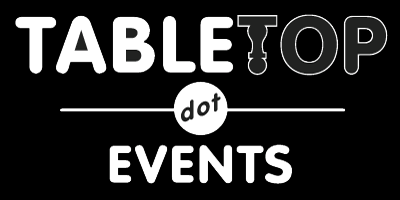
Tabletop.Events is ©2015-2024 BoardGameGeek, LLC. All rights reserved.
Be honest, helpful, and kind. We all want to succeed, but we make games to enjoy making things for people to enjoy. If we just wanted to make money, we'd ditch all this and go into banking.
After the designer has introduced their prototype, if you are not comfortable participating, let the designer know your concerns. It may not help them much to get feedback from outside their target audience. But your outside perspective could provide useful insight. It's good if you can come to an agreement, but you always have the right to step away.
You don't need to play a full session of a game to playtest it. If you've played for an hour, it's okay to say "I'm ready to give you my feedback." But if everyone wants to continue, that's okay too!
Be open with your feedback. You may be a game's first playtester outside the designer's friends and family. They need perspective from helpful and objective people to make a game that will appeal to a broader audience.
Hold your feedback until the game starts. Ask for clarification if necessary, but actually experience the game before offering suggestions. It can be helpful to write your thoughts down and come back to them later.
Give your feedback once and be done. Don't get upset if the designer doesn't seem immediately inclined to act on your ideas. Games are complex systems, and you may not understand all the ramifications of your suggestions. Or the designer may have a particular vision that is critical to their interest in the design. Either way, don't repeat yourself: let the next person speak, or the next playtest begin.
Do not waste your playtesters' time. Solo playtest your game at least once before asking others to play. Ensure important game terms are consistent in your rules and on your components. Provide player reference cards. Practice explaining the rules.
The visual design of your game only needs to be "good enough". Early prototypes usually don't need art. Use placeholder art until you're sure you're in the final stages of design. If you plan to pitch to publishers, remember that they will replace all your art with their own. (They might even re-theme the game entirely, with your permission.)
Prepare a contact sheet for people to sign up to be notified when the game is available for purchase. When you pitch your game, let the publisher know how many people are on that list.
If your game takes several hours to play, focus on a specific scenario. See if you can set up a game in progress, so the players can jump right to the part that you most want to test.
A playtest is an experiment. Your hypothesis is that your game will produce certain results. The goal of the playtest is to see if the hypothesis is valid. Write your hypothesis in your playtest notes before play begins.
Before explaining rules, let your playtesters know what kind of game they will be testing, how far along it is in development, and about how long you expect the playtest to last. Share your hypothesis. Help them understand the kind of feedback you need.
If you see a designer looking for testers, join their session before pulling out your own prototype. After that session is done, you'll have a group ready for another playtest, and that's a great time to propose yours.
Endeavor to contribute as much time as a playtester as you consume as a designer. When you add up the time other people spend on a playtest of your game, that's the amount of time you should reciprocate by playtesting other people's games. But you should be able to get at least one solid playtest of your own prototype each day. If that doesn't seem like it's happening, ask a staffer for help.
If a playtester tells you they see a problem, they're probably right. But it's up to you to decide if the problem is worth what it will take to fix. And it's up to you to decide how to fix it. You don't have to follow each suggestion, although you should understand the reasoning behind it.
Take notes on all the feedback you receive, even feedback you don't intend to act upon. It signals respect for your playtesters. And you might change your mind later.
Whatever happens, you will be spending the day with a lot of fun, helpful, intelligent people. Do what you can to make sure everyone feels heard, and has a chance to do what they came here to do. Grab a meal with someone. Make some new friends. Get home safe, so you can come back and see us again next time.